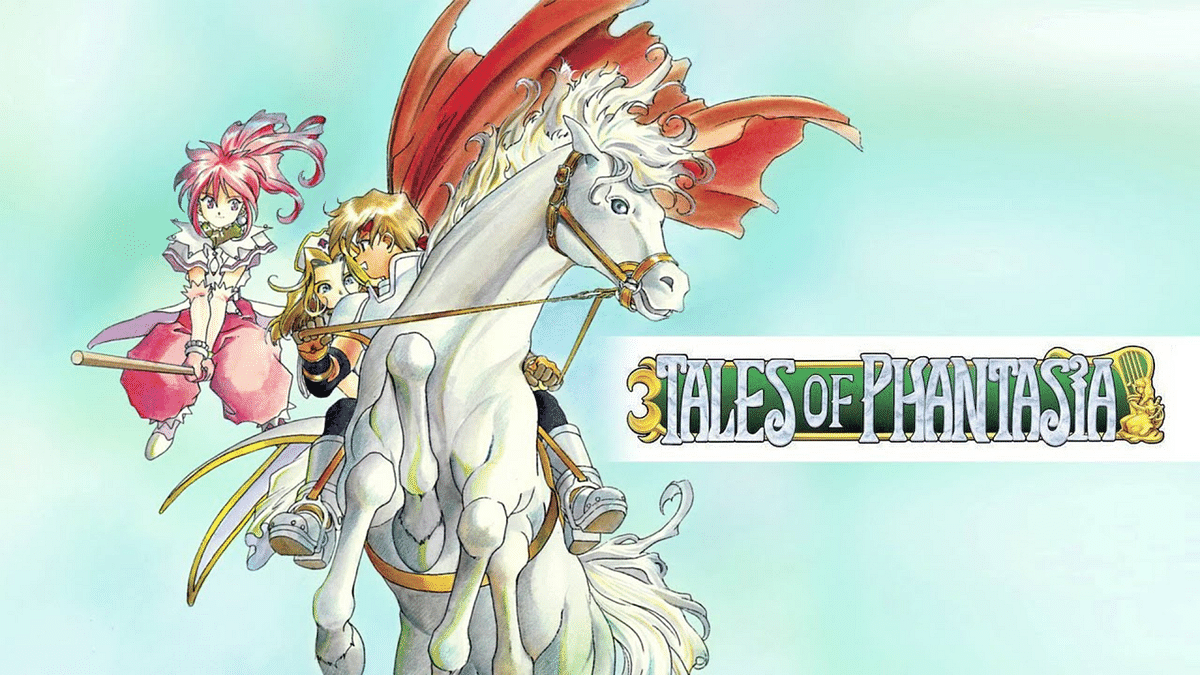
Released in 1995 by Namco for the Super Famicom, Tales of Phantasia is a pioneering title in the RPG genre, notable for its engaging story, dynamic combat system, and well-developed characters. As the first entry in the now-iconic "Tales" series, it set a high standard for its successors. While the game is lauded for its innovative approach, it does have some flaws, such as a high enemy encounter rate and graphics that, while beautiful, are sometimes at odds with its action-oriented gameplay.
The game boasts a compelling narrative that intertwines themes of time travel, destiny, and sacrifice. The story begins in the tranquil village of Toltus, where the protagonist, Cress Albane, lives a peaceful life. This tranquility is shattered when his village is attacked, leading to the death of his parents and setting Cress on a quest for revenge. As Cress's journey unfolds, he uncovers a larger conflict involving the resurrection of the dark sorcerer Dhaos, who threatens the very fabric of time itself, with links between Cress, his party members and their parents linking into an overall larger narrative.
The story's strength lies in its complexity and emotional depth. Characters are not mere archetypes but have rich backstories and motivations that drive the plot forward. The narrative's structure, involving time travel to different eras, allows for a diverse and evolving world. Each time period is meticulously crafted, offering unique challenges and insights into the overarching conflict. This temporal journey keeps the story fresh and engaging, avoiding the pitfalls of repetitive or predictable storytelling.
Moreover, the themes of Tales of Phantasia are profound and thought-provoking. The exploration of destiny versus free will, the impact of past actions on the future, and the personal sacrifices made for the greater good are woven seamlessly into the plot. These themes resonate with players, providing a narrative experience that is both entertaining and intellectually stimulating.
One of the differing aspects of the Tales series as a whole compared to a lot of its turn based contemporaries is its combat system. Unlike the turn-based combat typical of RPGs at the time, this game introduced the Linear Motion Battle System (LMBS). This real-time combat system allows players to control Cress directly on a 2D plane, engaging in fluid and dynamic battles. The ability to move freely, execute combos, and use a variety of skills and spells in real-time adds a layer of excitement and strategy that was groundbreaking for its era.
The combat system is not just about action but also about tactical depth. Players can control Cress while issuing commands to other party members, allowing for coordinated attacks and defense strategies. Each character in the party brings unique abilities to the table, necessitating thoughtful composition and tactics. This diversity ensures that combat remains engaging throughout the game, as players must adapt to different enemy types and scenarios.
Additionally, the game introduces the concept of “Artes,” special skills and magic that characters can learn and develop. Mastery of these Artes is crucial for overcoming tougher enemies and bosses. The progression system for learning new Artes and the satisfaction of executing powerful combos add to the overall enjoyment of the combat experience.
Characters and their growth is another strength of the game which presents a cast of memorable and multifaceted characters. Cress Albane, the determined and honorable swordsman, serves as the ideal protagonist. His journey from a naive village boy to a seasoned hero is well-developed and emotionally resonant. Alongside Cress, players encounter a diverse group of allies, each with their own stories and personalities.
Mint Adenade, the compassionate healer, provides emotional support and balance to the group. Her backstory, involving the loss of her parents and her role as the last of the clerics, adds depth to her character. Chester Burklight, Cress's childhood friend, offers a contrasting perspective with his brash demeanor and fierce loyalty. His motivations are deeply personal, driven by a desire for vengeance and justice.
Other notable characters include Claus F. Lester, a scholarly summoner who adds intellectual prowess to the team, and Arche Klein, a half-elf with a mischievous yet caring nature. Each character’s personal journey and development are integral to the narrative, creating a strong emotional connection between the player and the game.
The interactions between the characters are a highlight of the game. Their dialogues are well-written, blending humor, drama, and camaraderie. These interactions not only serve to develop the characters further but also enrich the overall story. The bonds formed between the characters feel genuine, making their collective quest more impactful and you can tell that this was the foundation for a later development in the series "skits" between characters which serve as bond forming cutscenes for character growth and levity.
One of the most frequent problems I had when playing this game is its high random enemy encounter rate. I found myself interrupted by battles very frequently, which disrupted the flow of exploration and narrative progression. This led to frustration, especially when I was navigating through large dungeons or attempting to solve puzzles. To be honest it was so bad it almost made me drop the game entirely.
The inventory system is also very limiting. Managing items can be cumbersome, and the limited inventory space means players must frequently decide which items to keep and which to discard. This can be particularly challenging when balancing healing items, equipment, and other essential supplies.
Overall whilst this game didn't spawn my motivation to complete the Tales of.. series as a whole; it has motivated me to continue on and gave a really good perspective on the origins on the series and where the strengths and deficits may be for the games to come.

